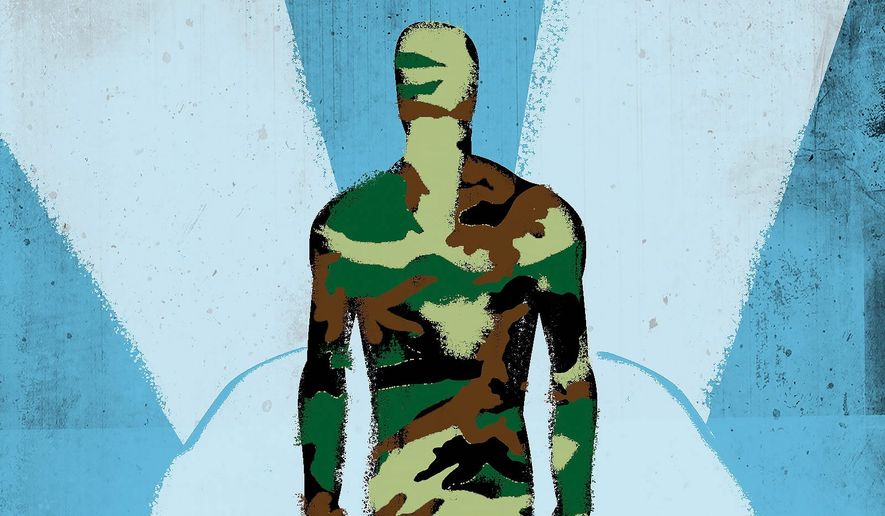OPINION:
It’s time for Congress to fix a wrong — actually, an injustice — that affects our combat-injured veterans.
Under current policy, military members forced to retire after a combat-related injury must forfeit a portion of their Department of Defense retirement pay earned for years of service, equal to their veterans disability compensation. Reducing the retirement pay of a combat-disabled veteran — in effect, using it to pay their disability benefit — is just as wrong as it sounds.
When Congress convenes to mark up the 2024 National Defense Authorization Act, it must act to correct this injustice. Over two-thirds of Congress supported legislation last year to remove the offset; this year, Congress must include the Major Richard Star Act in the NDAA.
Put simply, this offset makes no sense. DOD retirement pay and veterans disability compensation are two benefits established by Congress for entirely different reasons; reducing pay because of a combat disability is not the way to achieve savings. How can this be seen as anything but an attempt to balance the books on the backs of our soldiers, sailors, airmen and Marines who risk their lives and get hurt?
This is not how a nation should treat those who volunteer to represent their country and risk life and limb. The policy sends the wrong message to future service members, especially when our recruiting efforts are facing serious problems.
Thankfully, the Major Richard Star Act would repeal this unfair offset that prevents more than 50,000 veterans living with the wounds of combat from accessing both their veterans disability benefits and DOD retirement pay. The proposed legislation is named for an Army combat engineer who led route clearance and construction missions in Afghanistan and Iraq. Engineers were in high demand in those conflicts, working hard to open roads and build infrastructure in those countries.
Star was injured on the last of several deployments and was forced into medical retirement before he could complete 20 years of service. Accordingly, his DOD retirement pay was reduced, dollar for dollar, to match his veterans disability.
Star learned about this reduced retirement pay from his hospital bed at Walter Reed National Military Medical Center. Driven to represent his fellow wounded veterans and the friends he made in his hospital ward during his extended stay, he started visiting offices in the House and Senate. Struggling to make it down the halls and frequently out of breath, Star pushed to introduce legislation that would remedy the offset provision. Unfortunately, Star died in February 2021.
Many of these combat-injured veterans require full-time care. In some cases, spouses and family members give up their jobs to help their loved ones. This increases a family’s stress — emotionally and financially — and makes the repeal of this offset all the more necessary.
There has been clear bipartisan support for the Major Richard Star Act in the past, but that support must grow. Last year, 336 House and 67 Senate members co-sponsored the legislation. Less than five full months into 2023, there are 301 House and 63 Senate co-sponsors. Forty representatives and 11 senators who co-sponsored the bill last year have yet to sign on this session.
Why make this bill part of the NDAA? While ships, aircraft, missile systems and other weaponry get proper attention in Congress as part of decisions affecting the security of our nation, we must not forget who operates those systems and who goes into harm’s way: people. It’s straight from the long-used military motto — “Mission First, People Always.”
Supporting our combat-injured veterans is a national imperative, which is why the Military Officers Association of America supports passage of this legislation, making it one of the association’s top advocacy issues for the 118th Congress.
Lawmakers must make certain our veterans are not shortchanged by unfair rules that cancel out one earned benefit so they can receive another. Our veterans should not be pushed aside because they were injured in a war. Regardless of their length of service, these veterans have earned their benefits through their extraordinary sacrifice in defending our nation. Our combat-injured service members deserve better.
• Tom Jurkowsky is a retired Navy rear admiral who served on active duty for 31 years. He is a member of the Military Officers Association of America board. MOAA is a nonprofit advocacy organization that advocates a strong defense, and for its people and their families.




Please read our comment policy before commenting.